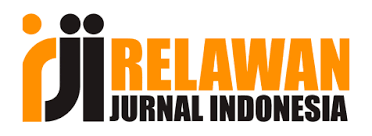Revisiting the Filipino Value Utang na Loob: Contextual Perceptions, Implications and Inputs to Sustaining the Filipino Psychology Discussions
DOI:
https://doi.org/10.58557/(ijeh).v5i2.311Keywords:
Altruism, Filipino value, Goodwill, Utang na loob, VirtueAbstract
Utang na loob (debt of gratitude) is a cultural value deeply ingrained in Filipino society. It is not merely a part of the local vernacular but a profound moral construct that serves as one of the pillars of Filipino identity and social reality. However, this concept is often misunderstood and misused in practice, potentially leading to unhealthy social pressures for the recipient. This phenomenon has fostered a perception that utang na loob is burdensome and even considered a toxic trait in social relationships. This study aims to understand the true essence of utang na loob in a localized context and explore how Filipinos perceive and apply this value in their daily lives. A qualitative survey was conducted, employing the In Vivo Coding method to capture the intrinsic meanings embedded in the participants' statements. The collected data were then analyzed and structured into manageable insights that provided a deeper understanding of the concept. The study revealed that utang na loob goes beyond mere reciprocity and serves as a tool for strengthening social connections. However, its misuse can lead to emotional pressure on the recipient, often making them feel bound by an overwhelming social obligation. It is essential to instill in the younger generation that utang na loob should be rooted in goodwill and genuine concern for others rather than being perceived solely as a social obligation that imposes burdens
References
Agaton, Sheldon Ives. (2017). Vantage Points of Utang na Loob. Social Ethics and Society Journal of Applied Philisophy, (3), 59-77.
Andres, T.D. (1994). Dictionary of Filipino culture and values. Quezon City: Giraffe Books.
Baker, M., & Saldanha, G. (2020). Routledge Encyclopedia of Translation Studies. Routledge.
Bernardo, A., Sta. Maria, M., & Tan, A. (2002). Forty years of Philippine psychology. Diliman QC, Philippines: Psychological Association of the Philippines
Brough, P. (2025). Advanced research methods for applied psychology: Design, analysis and reporting (2nd ed.). New York, NY: Routledge
Castro, L.D. (1998). Debts of Good Will and Interpersonal Justice.
Cleofas, J.A. (2019/06). Towards a Practical and Empircially Grounded Account of Utang-na-loob as a Filipino Virtue. Kritika Kultura, 33/34: 156-179.
Corbin, J., & Strauss, A. (2008). Basics of Qualitative Research: Techniques and Procedures for Developing Grounded Theory (3rd ed.). Thousand Oaks, CA: Sage. Organizational Research Methods, 12(3), 614–617. https://doi.org/10.1177/1094428108324514.
Cropley, Arthur. (2023). Qualitative Research Methods: A Practice-Oriented Introduction. Editura Intanglio
Dancel, F. (2005). Utang na loob: A philosophical analysis. Filipino Cultural Traits: Claro R. Ceniza Lectures (Chap. 5). Retrieved July, 12, 2010, from http://www.crvp.org/book/Series03/IIID- 4/chapter-5.htm.
Denzin, N.K. (2014). Interpretive autoethnography. Thousand Oaks, CA: Sage.
Enriquez, V. G. (1977). Filipino psychology in the Third World. Philippine Journal of Psychology, 10(1), 3–18.
Enriquez, V. G. (1994). Pagbabagong dangal: Psychology and Cultural Empowerment. Quezon City: Akademya ng Kultura at Sikolohiyang Pilipino.
Gundran, A. P., Manalo, J. J., Soriano, P. S., Cagsawa, R. O. & Manguiat, G. C. (2022). THE CONCEPT OF UTANG NA LOOB IN THE PHILIPPINES: UTANG NA LOOB SCALE. ANTORCHA, 8(1).
Harris, Bonnie. (2016). Jewish Refugee Rescue in the Philippines, 1937 - 1941.
Hollnsteiner, Mary R. “Reciprocity in the Lowland Philippines.” Four Readings on Philippine Values, edited by Frank Lynch and Alfonso de Guzman II, Ateneo de Manila UP, 1973, pp. 69-118.
Ivanov, D. (2014). The art of translation. Cogito; Bucharest Vol. 6, Iss. 1, (Mar 2014): 87-93.
Jocano, F. (1997). Filipino value system: A cultural definition. Metro Manila: Punlad Research House
Jusay, Mariah Ann. (2021). Upholding an Accommodative Filipino Value: A Measure of Utang na Loob Orientation.
Kaut, C. R. (1961). Utang na loob: A system of contractual obligations among Tagalogs. Southwestern Journal of Anthropology, 17, 256-272.
Le, Dung. (2024). Investigating how cultural differences influence the translation process and the strategies used by translators to bridge cultural gaps. Journal of Translation and Language Studies. 5. 26-36. 10.48185/jtls.v5i3.1268.
Merriam, S.B. & Tisdell, E.J. (2015). Qualitative research: A guide to design and implementation (4th ed.). John Wiley & Sons: San Francisco, CA.
Miranda, Dionisio M. (1989). Loob-the Filipino within: A preliminary investigation into a pre-theological moral anthropology. Manila: Divine Word Publications.
Pe-Pua, R., & Protacio-Marcelino, E. A. (2000). Sikolohiyang Pilipino (Filipino psychology): A legacy of Virgilio G. Enriquez. Asian Journal of Social Psychology, 3(1), 49-71. http://dx.doi.org/10.1111/1467-839X.00054
Reyes, Jeremiah. “Loób and Kapwa: An Introduction to Filipino Virtue Ethics.” Asian Philosophy, vol. 25, no. 2, 2015, pp. 148-171.
Rungduin, T.T., Rungduin, D.C., Joshua, A., Catindig, R.B., & Gallogo, L.S. (2015). The Filipino character strength of utang na loob: Exploring contextual associations with gratitude. International Journal of Research Studies in Psychology, 5.
Singh, A. (1970). Nationalized social sciences and teaching of sociology in Canada: A sociology of sociology approach Paper presented at the Canadian Sociology and Anthropology Association’s Meetings at Edmonton, May.
Suazo, R. (2014). Clarifying Filipino Family Orientation as a Core Value Using Ricoeur’s Hermeneutics of Appropriation. Usc-ph. https://www.academia.edu/6658082
Venuti, L. (2017). The Translator’s Invisibility: A History of Translation. Routledge.
Downloads
Published
How to Cite
Issue
Section
License
Copyright (c) 2025 Rey Marco Z. Casiño, Liandro L. Serrano, Maria Isabel D. Granada

This work is licensed under a Creative Commons Attribution-ShareAlike 4.0 International License.














